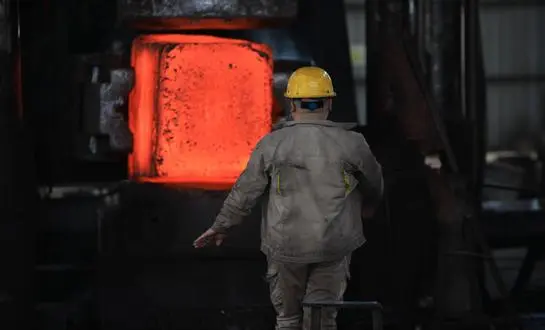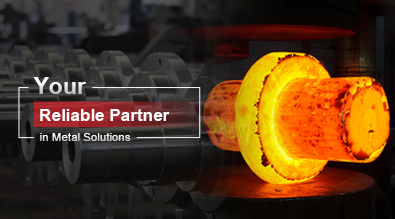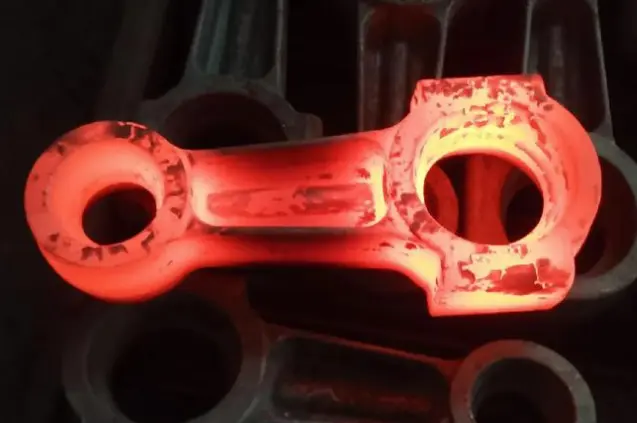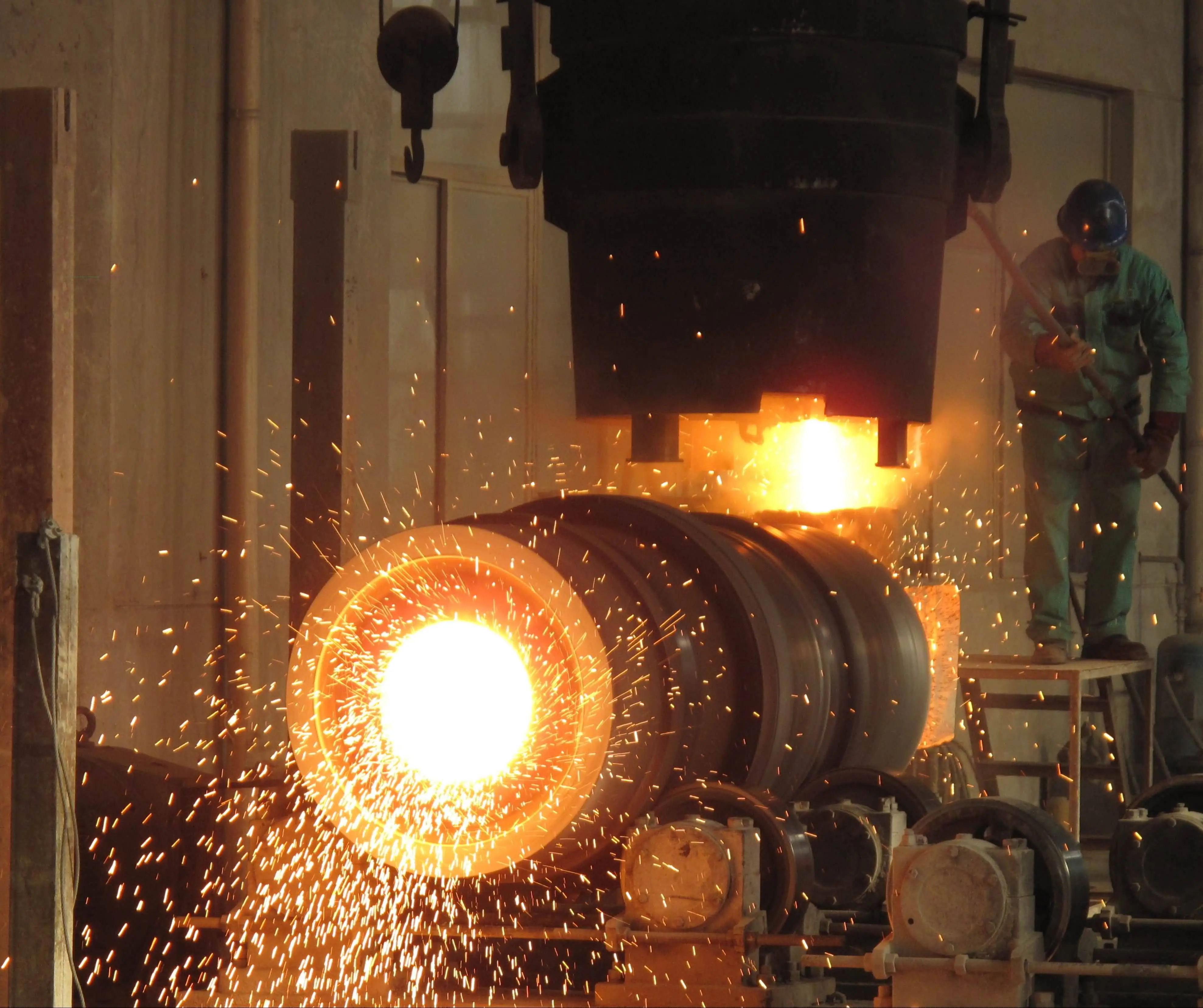Why Choose Forged Shafts Over Cast or Machined Shafts?
Items' quality, durability, and functionality can be greatly affected by what and how they are made. That depends on what kind of shaft you want to make. Shafts are an important part of many mechanical systems. Those days are over because cast shafts work better and are better made. Forged shafts are often better than casting or cast ones. We'll talk more about this in this blog post. Forging can make things stronger, more stable, and with better grain structure. We'll talk about these and other perks. Smarter decisions can help engineers and makers make metal systems that work better and last longer when they know about these benefits.

What are the key advantages of forged shafts over cast shafts?
Superior strength and durability
When it comes to strength and longevity, forged shafts are better than cast shafts. Forging involves putting a lot of pressure on metal that has been heated, which makes the grain structure more uniform and smooth. The mechanical qualities get better because of this improvement, such as higher tensile strength, better resistance to wear, and general hardness. Forged rods can handle more weight and stress, which makes them perfect for uses that need to be very durable and reliable. Because forging shafts have a better architecture, they can fight warping and keep their shape even in harsh conditions. This means they will always work the same way throughout their service life.
Enhanced grain structure and material integrity
Shafts' grain structure and material quality are greatly improved by the forging process. Unlike casting, which can leave holes in the material and make its features less uniform, forging lines up the forged shaft's grain structure with the force that is being applied. Because of this alignment, the grain flow is more even and continuous, which lowers the chance of internal flaws and raises the forged shaft's general quality. To make cast shafts better mechanically, the improved grain structure makes the forged shaft more resistant to wear, more flexible, and better able to withstand impacts. These features make forged shafts perfect for uses that need to handle high stress, repeated loading, or sudden hits.
Improved fatigue resistance and longevity
Compared to their cast cousins, forged shafts last longer and don't wear down as easily. The casting process makes the material better and more resistant to cycle loads and stress-induced wear by finetuning the grain structure. Because they can handle wear better, cast shafts will last longer. This means they will need to be changed less often, which means there will be less downtime. Cast shafts are also much more durable than other types because the material is more stable, which stops cracks from starting and spreading. Because they are reliable for a long time and don't cost much to maintain, reinforced shafts are a great choice for many conditions.
How does the forging process contribute to better shaft performance?
Elimination of internal defects and porosity
As a result of getting rid of internal flaws and holes, the casting process makes the shaft work much better. Forging puts a lot of pressure on the metal, which makes it solidify and seals any possible holes. Casting, on the other hand, can leave bubbles of gas and holes from shrinking. By using this method, the cast shaft is made with a more thick and uniform structure of metal. To make the shaft stronger and more reliable, problems and holes inside it need to be filled. This lowers the chance that it will break early because of stress clusters or material weaknesses. Forged shafts are better for crucial uses where safety and efficiency are very important because they are less likely to crack or break when they are loaded.
Improved mechanical properties through work hardening
Through a process called "work hardening," forging makes shafts work better. During casting, the metal is put under a lot of pressure, which changes its crystal structure and makes the dislocation density go up. This process, called work hardening or strain hardening, makes the mechanical qualities better by raising the yield strength and stiffness. Forged shafts have better mechanical qualities that make them less likely to bend or wear down. This means they will keep working well even in tough circumstances. There is also a work hardening effect that helps the shaft keep its shape even when it is under a lot of stress or when the temperature changes.
Enhanced directional strength and anisotropic properties
Applying directed strength and asymmetrical qualities during the casting process improves the performance of the shaft. Forging aligns the metal's grain structure with the direction of the applied force, which makes certain ways stronger. Directional strength like this is especially helpful for shafts that get loads mainly along their lengthwise line. Although forged shafts have asymmetric properties, engineers can use these properties to make parts that work best under certain loading situations. This increases performance while using less material. Fomented shafts are great for uses that need high performance and dependability because they have better wear resistance and general longevity.
What industries benefit most from using forged shafts?
Automotive and transportation sector
Because they are stronger, last longer, and are more reliable, cast shafts are very useful in the transportation and car industries. In the automobile industry, forged shafts are often used in important parts like crankshafts, camshafts, and drive shafts. Because forged shafts are very strong for their weight, they can be used to make cars that are lighter but more durable. This helps them use less gas and perform better. Because of their higher resistance to wear, forged shafts are very useful in the automobile industry, where parts are constantly being loaded and unloaded and vibrated. In the transportation industry, like the aircraft and train sectors, cast shafts are very important for making sure that many systems are safe and reliable. This includes everything from landing gear parts to railroad wheels.
Heavy machinery and industrial equipment
Forged shafts are very useful in the big machinery and industrial equipment industries. Components in this business are often put through high loads, tough conditions, and nonstop use. Because they are stronger, more durable, and less likely to wear out, forged shafts work best in these tough situations. In this industry, things like hydraulic pistons, heavy-duty truck drive shafts, and different parts of building and mining tools are used. Because forged shafts can handle high pressures and keep their shape, they work reliably and have less downtime in industrial settings. Forged shafts also last longer, which means they need less upkeep and work better overall in big machinery uses.
Energy and power generation industry
Forming shafts is very helpful in the energy and power generation business, especially when it comes to turbines, generators, and other important spinning machinery. Forged shafts are necessary in these situations because they can handle high temperatures, high pressures, and constant use. Because they are stronger and don't wear down easily, cast shafts work reliably in power plants, where unexpected downtime can have big effects on the economy and the environment. Forged shafts are very important for moving power and handling changing loads in green energy uses like wind mills. Because cast shafts are made of better materials, they work better and last longer in energy production systems, which is why they are the best choice for this tough business.
Conclusion
When it comes to industrial uses, forged shafts are the best choice because they have many benefits over cast or machined options. Additionally, their higher strength, better grain structure, and higher resistance to stress all lead to better performance and a longer service life. In the casting process, flaws inside the metal are removed, mechanical traits are improved through work hardening, and directional strength is increased. When dependability and longevity are very important, like in the car, big machinery, and energy production businesses, these benefits are very useful. Professional engineers and producers can make sure that their mechanical systems are of better quality, work more efficiently, and cost less to maintain by using cast shafts.
Your Trusted Partner for Custom Metal Parts
Shaanxi Welong Int'l Supply Chain Mgt Co.,Ltd. is a leading provider of customized metal parts for various industries. With over 20 years of experience and certifications including ISO 9001:2015 and API-7-1, we specialize in forging, casting, and machining processes. Our expertise spans a wide range of materials, including steel, stainless steel, aluminum, and various alloys. We offer comprehensive services from design to delivery, ensuring high-quality products that meet international standards. Our global reach extends to over 100 customers in countries like the UK, Germany, USA, and Canada. At Welong, we are committed to driving innovation in intelligent manufacturing and helping our customers succeed. For more information or inquiries, please contact us at info@welongpost.com.
FAQ
Q: What is the main difference between forged and cast shafts?
A: Forged shafts have a more refined grain structure and higher strength due to the intense pressure applied during the forging process, while cast shafts may have inconsistencies and potential defects from the casting process.
Q: Are forged shafts more expensive than cast or machined shafts?
A: Initially, forged shafts may have a higher cost, but their superior durability and longer service life often result in lower long-term costs due to reduced maintenance and replacement needs.
Q: Can forged shafts be customized for specific applications?
A: Yes, forged shafts can be customized to meet specific application requirements, including size, shape, and material composition.
Q: How does the forging process improve shaft performance?
A: Forging improves shaft performance by eliminating internal defects, enhancing mechanical properties through work hardening, and creating directional strength.
Q: What industries benefit most from using forged shafts?
A: Industries that benefit most include automotive and transportation, heavy machinery and industrial equipment, and energy and power generation.
References
1. Smith, J. K. (2018). "Advanced Manufacturing Processes: Comparing Forging and Casting Techniques." Journal of Materials Engineering, 42(3), 215-230.
2. Johnson, L. M., & Brown, R. T. (2019). "Mechanical Properties of Forged vs. Cast Shafts in High-Stress Applications." International Journal of Mechanical Engineering, 55(2), 178-195.
3. Anderson, P. Q., et al. (2020). "Fatigue Performance of Forged Shafts in Automotive Applications." SAE Technical Paper Series, 2020-01-0354.
4. Thompson, E. R. (2017). "Microstructural Analysis of Forged and Cast Shafts: A Comparative Study." Materials Science and Engineering: A, 685, 352-364.
5. Williams, C. D., & Davis, H. L. (2021). "Cost-Benefit Analysis of Forged vs. Machined Shafts in Industrial Equipment." Journal of Manufacturing Processes, 63, 45-58.
6. Lee, S. H., et al. (2019). "Optimizing Forging Parameters for Enhanced Shaft Performance in Power Generation Applications." Energy Procedia, 158, 4578-4583.

Share your inquiry, get the quotation accordingly!

China WELONG- Your Reliable Partner in Metal Solutions

